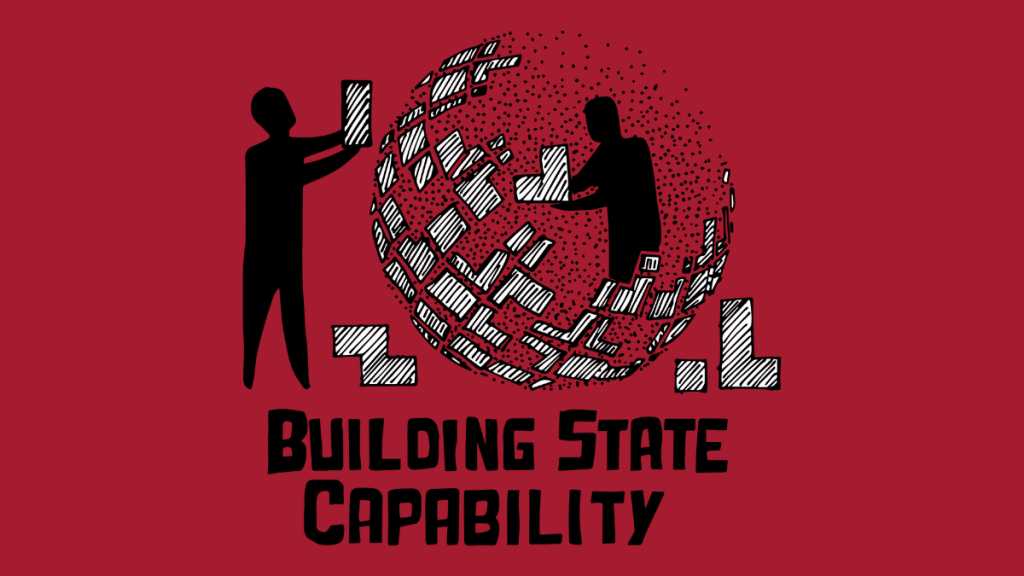written by Lant Pritchett At a recent holiday party I was discussing organizations and innovations with a friend of mine who teaches at the Harvard Business School about organizations and is a professor and student about technology and history. I told him I was thinking about the lessons for the development “best practice” mantra from…Continue Reading Best Practice is a Pipe Dream: The AK47 vs M16 debate and development practice
Finding the Fringes of Formality: Organizational Capability in Street-Level Bureaucracies in Brazil
Guest blog written by Susana Cordeiro Guerra Why is it that, despite the abundant resources invested and the largely favorable macroeconomic conditions that have prevailed until recently, middle-income countries have been unable to systematically deliver quality basic services, such as education and safety, to their citizens? Despite a wide variety of attempts to improve these crucial…Continue Reading Finding the Fringes of Formality: Organizational Capability in Street-Level Bureaucracies in Brazil
Book Review of Serious Whitefella Stuff: When Solutions Became the Problem in Indigenous Affairs

written by Michael Woolcock It is no secret that a long succession of Australian governments – federal and state, Liberal and Labour – have struggled to implement effective policies in Indigenous communities. Less well known, even among seasoned researchers, is exactly why this has been (and remains) the case. How is it that a public…Continue Reading Book Review of Serious Whitefella Stuff: When Solutions Became the Problem in Indigenous Affairs
Doing Problem Driven Work, great new guide for governance reformers and activists
By Duncan Green One of the criticisms of the big picture discussion on governance that’s been going on in networks such as Doing Development Differently and “Thinking and Working Politically” is that it’s all very helicopter-ish. ‘What do I do differently on Monday morning?’, comes the frustrated cry of the practitioner. Now some really useful…Continue Reading Doing Problem Driven Work, great new guide for governance reformers and activists
Busting Myths about Governance and Development
David Booth highlighted 5 myths about governance and development in a blog earlier this year. Two of his points are particularly relevant for PDIA. Myth 2: Governance-improvement is a good entry-point for developmental reform. In our experience, constructing local problems is the entry point to begin the search for solutions that ultimately drive change. We…Continue Reading Busting Myths about Governance and Development
How do money, ideas and, reforms come together to produce better development outcomes?
Despite the considerable time, money, and effort that aid agencies, international organizations, and NGOs expend producing analysis and advice to inform or influence policymakers in developing countries, there is a remarkable lack of understanding about which of these instruments are most and least effective at spurring and sustaining reforms – and why. In an attempt…Continue Reading How do money, ideas and, reforms come together to produce better development outcomes?
PDIA in Indonesia: The new frontline service delivery policy
How does the government of Indonesia make its presence felt by all 250 million citizens across the sprawling archipelago? While decentralization provides district governments the authority to address local needs, effective execution of these functions relies heavily on the capacity of the local governments to analyze service gaps and drive more coordinated efforts to address…Continue Reading PDIA in Indonesia: The new frontline service delivery policy
Making the case for case studies in development practice
Written by Michael Woolcock The frequency and sophistication with which case studies are deployed by social scientists has greatly expanded in recent years. The goal now is not merely to document or describe, but to diagnose, explain, interpret, and inform a basis for action. Professional schools across the disciplines – from medicine and engineering to…Continue Reading Making the case for case studies in development practice
Rising to the challenge: Supporting PDIA in Nigeria
The importance of thinking and working politically in programs concerned with governance and institutional reform is widely recognized – but shifting from thinking politically to working politically is proving a major challenge. The State Accountability and Voice Initiative (SAVI), a governance reform program in Nigeria, supports local partners and stakeholders not through the usual accountable…Continue Reading Rising to the challenge: Supporting PDIA in Nigeria
EEP/Shiree: Using adaptive programming to monitor change in Bangladesh
written by Salimah Samji How do you effectively monitor an 8 year, £83.5 million (around USD$135 million) challenge fund that partners with NGOs to improve the livelihood of 1 million beneficiaries? A daunting task indeed. The Economic Empowerment of the Poorest (EEP/Shiree) program is a partnership between the UK Department for International Development (DFID), the…Continue Reading EEP/Shiree: Using adaptive programming to monitor change in Bangladesh